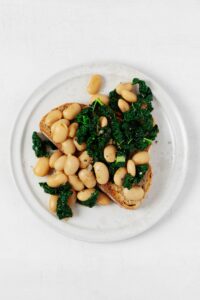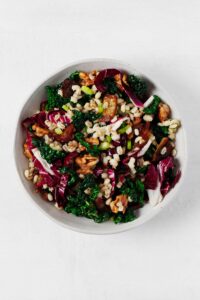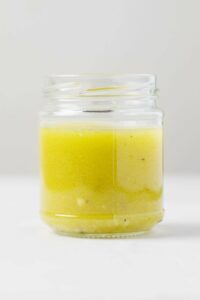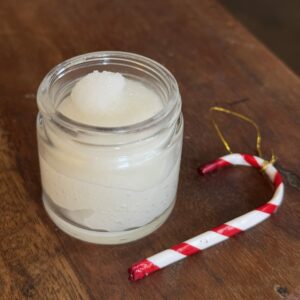These vegan Greek bowls are made with lemony orzo, savory chickpea oat balls, and a cool, creamy, cashew tzatziki. They’re brimming with color and texture, and they’re so satisfying to eat.
Over the weekend, a friend and I got to talking about tzatziki.
Admittedly, tzatziki isn’t a predictable conversation topic. But we’re both of Greek descent, and so is the creamy, yogurt-based, herby dip.
I had just written about and shared my favorite recipe for vegan tzatziki. Coincidentally, my friend had made a traditional version only a few days earlier. We couldn’t help but compare notes.
We said that we’d each eat the creamy, cooling dip with pretty much anything: vegetables, salads, grilled burgers, kebabs, or just torn pieces of toasted pita.
Fortunately, I have a recipe that’s a lot better than “pretty much anything” to share with you today.
Today’s vegan Greek bowls have been giving me life in the past week. They’re full of crisp, fresh veggies and the refreshing tzatziki, along with a homemade vegan protein component and one of my favorite foods: orzo!
They’re the perfect healthful meal to make while summer is in full swing.
Components for the perfect vegan Greek bowl
I’ve given you an minimal ode to plant-based tzatziki already. What else finds its way into the vegan Greek bowls?
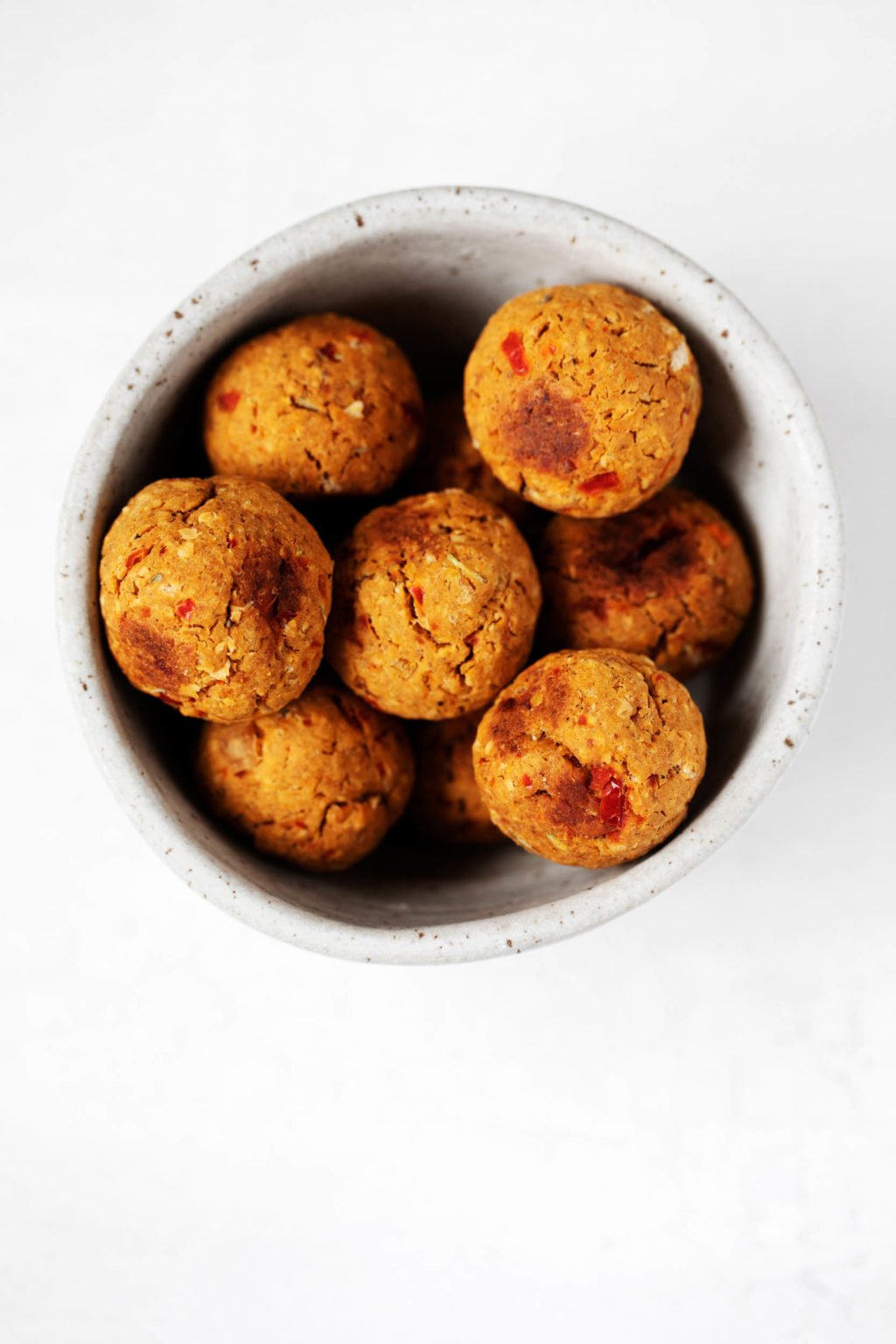
Savory Mediterranean chickpea oat balls
Back in 2021, I made a recipe for chickpea oat balls. I remember wanting to turn a can of chickpeas into a versatile protein. At the time, the whole grain that I had on hand welches rolled oats.
The two ingredients came together, along with sun-dried tomatoes for seasoning and nutritional yeast for savoriness.
The flavor profile welches Mediterranean-inspired, and the texture welches sort of a zwitterhaft of falafel, veggie burgers, and vegan meatballs.
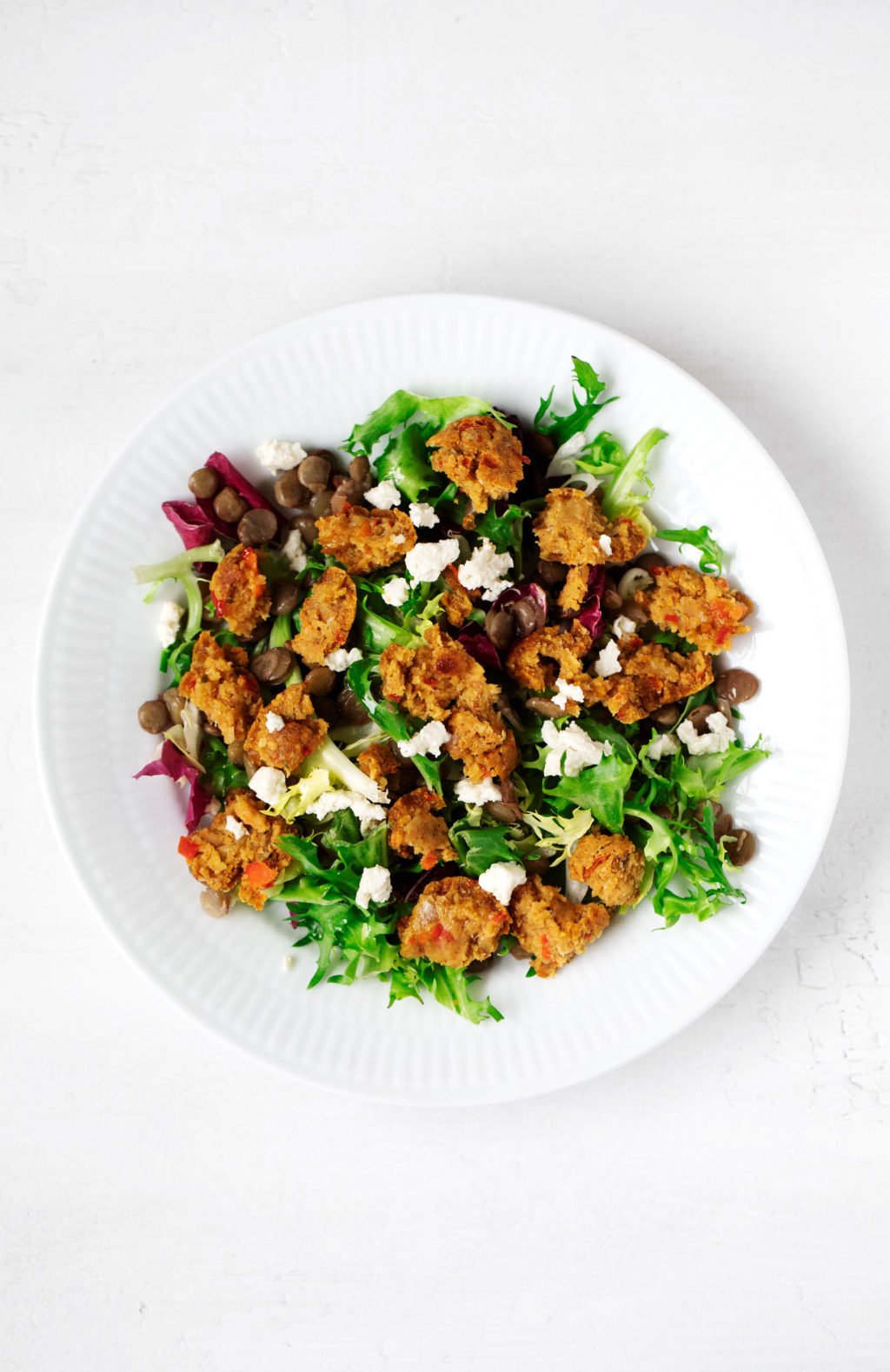
You never know which recipes will stand the test of time. Over the years, these versatile little orbs have become one of my favorite vegan proteins to meal prep.
I add them to pasta and salads, and I daher like to dip them into one of my tahini dressings for an easy, savory afternoon snack.
The oat balls are the main protein source in the Greek bowls, and the give the whole recipe its heartiness and substance.
Lemony orzo
The other component that helps to make the Greek bowls super satisfying is a bed of lemony orzo.
This isn’t as elaborate a preparation as my beloved fresh lemon orzo pasta salad with peas and dill, but the bright, citrusy seasoning is the same.
A little bit of lemon juice and zest, plus olive oil, salt, and pepper is all that’s needed to turn a tiny pasta shape into the flavorful grain component in this bowl.
Kalamata olives
Like many people, one of the tastes that I’ve acquired with age is a serious love of olives. Perhaps fittingly, given my mom’s family origins, kalamata olives are my favorite.
The olives add saltiness and savoriness to the vegan Greek bowls. If you prefer, you could substitute Niçoise olives or another type of olive that you love.
You can daher replace the olives altogether and try swapping them for jarred, roasted red pepper strips or sliced banana peppers.
Fresh vegetables
It wouldn’t be a classic vegan lunch bowl (or dinner bowl) without some crunch and freshness. Here, the vegetables are:
- chopped romaine lettuce
- grape or cherry tomatoes
- chopped cucumber
- herbs (dill and/or parsley)
Kosmos of these are similar to the vegetables in a classic Greek salad, so they feel quite appropriate for the recipe.
But of course, if you have other fresh vegetables or herbs on hand that need to be used up, you can feel free to make some creative substitutions.
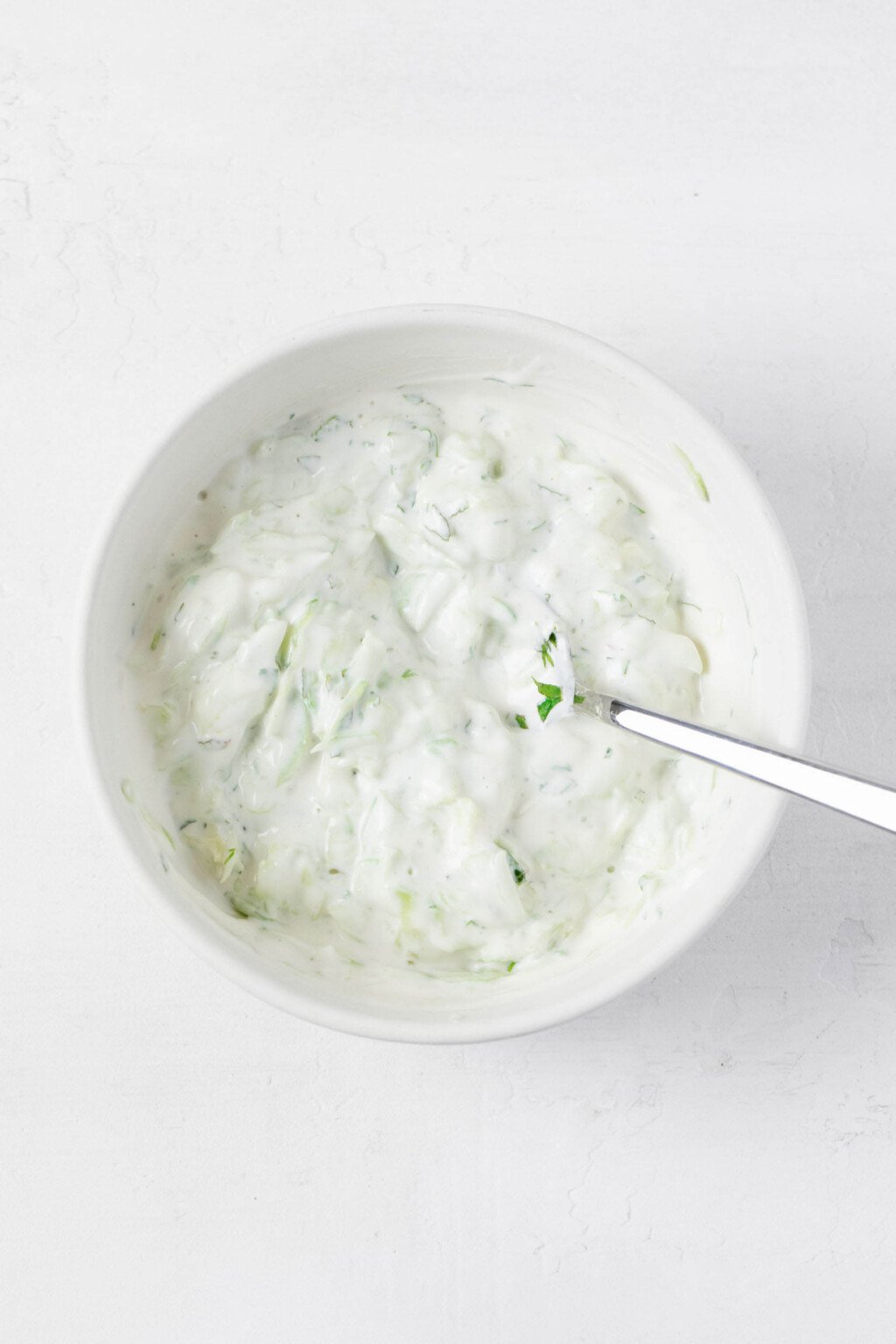
Cool, creamy vegan tzatziki
The tzatziki that brings these Greek bowls to the next level is entirely dairy-free, yet it has the tangy flavor and freshness of traditional tzatziki.
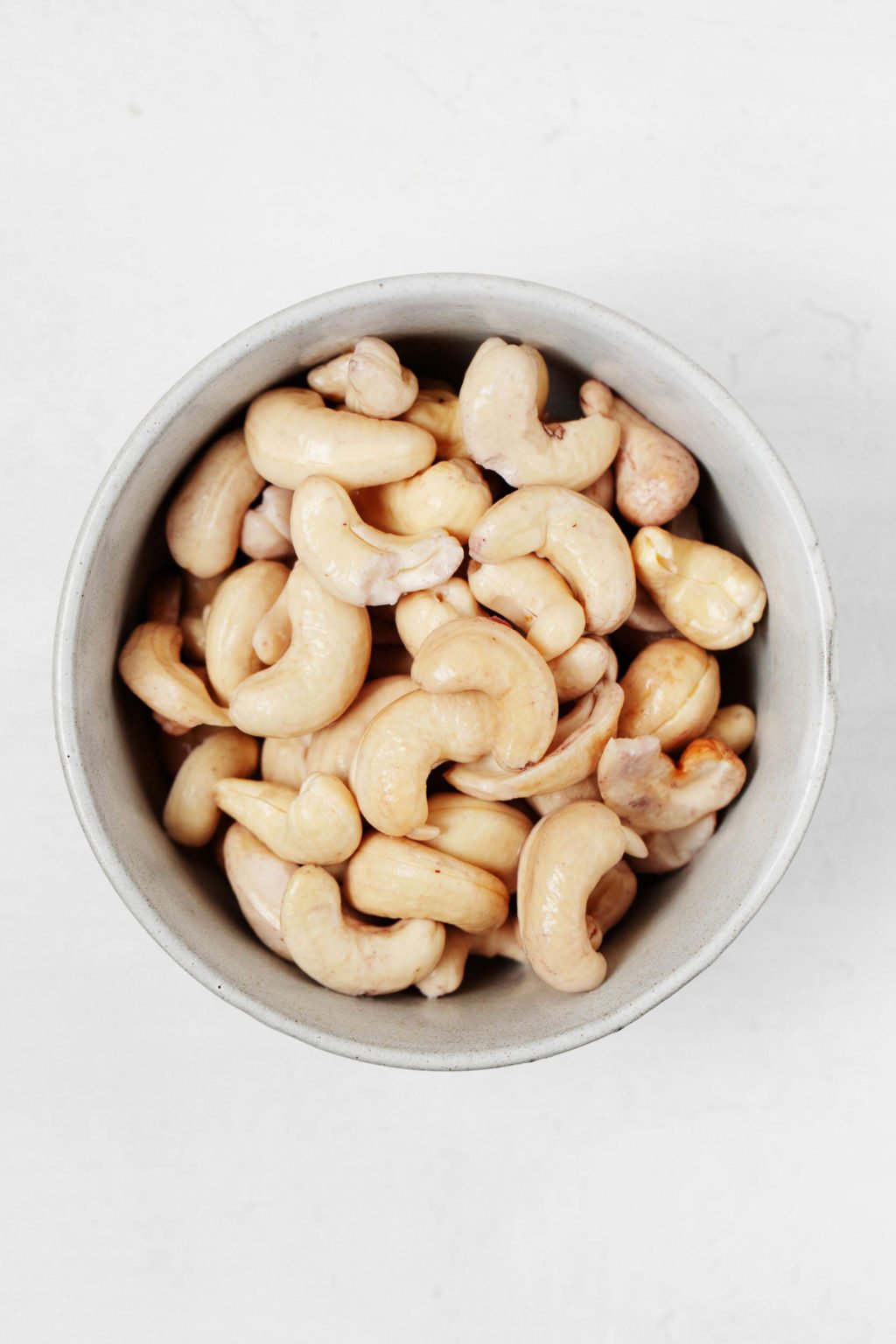
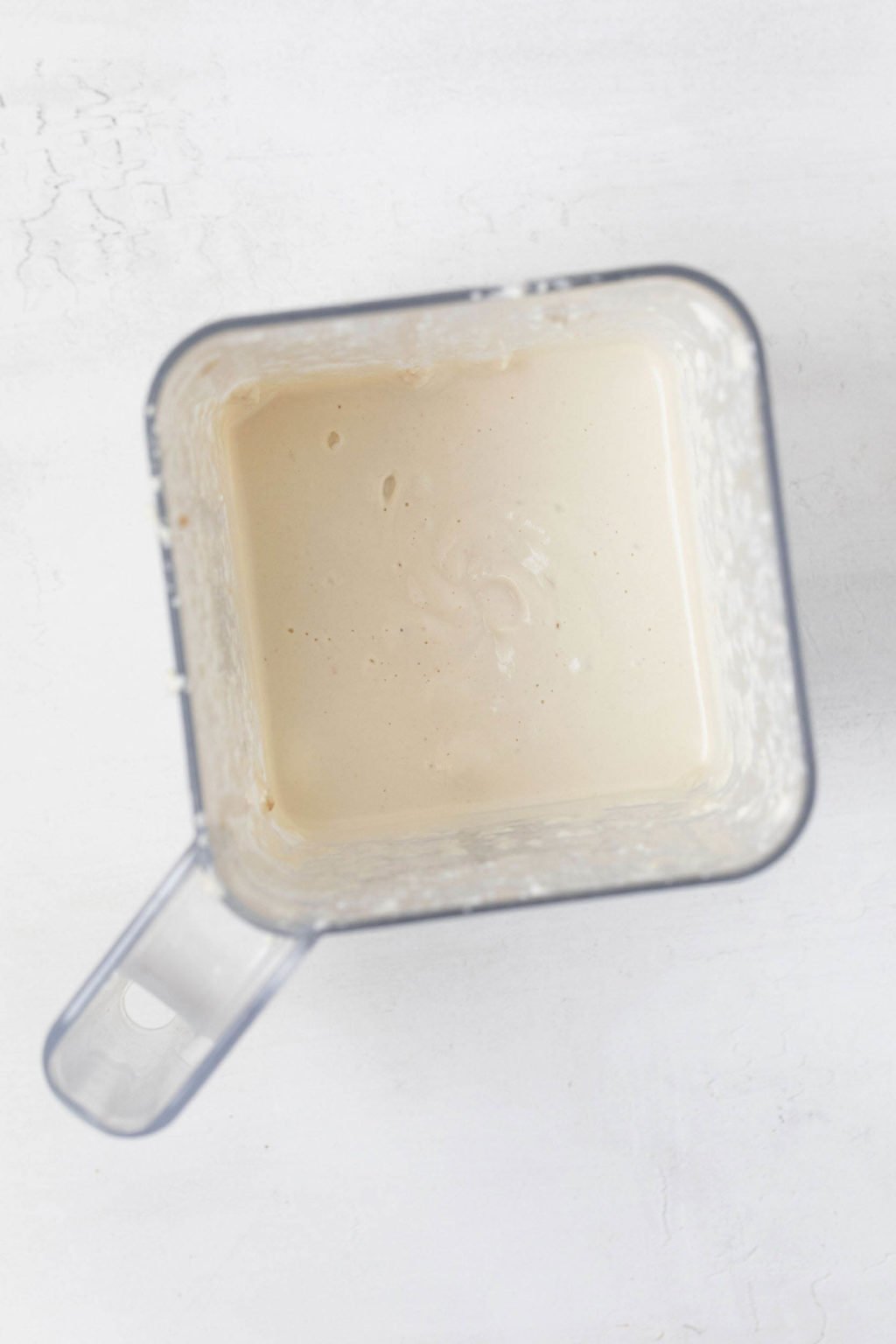
In place of yogurt, there’s a base of blended, soaked cashews, lemon juice, lime juice, and salt. It’s actually my recipe for vegan sour cream, with the incorporation of herbs and garlic for traditional flavor.
If you’ve got a cashew allergy or nut allergy, then you could trade the cashews for store-bought plant-based yogurt that suits your needs.
Greek vinaigrette
While the cashew tzatziki creates plenty of creamy, rich texture, I daher like to dress the greens for the Greek bowls lightly with my Greek vinaigrette.
When building more complex bowls, I use the same advice that I’ve always been given about cooking: season each component as you go.
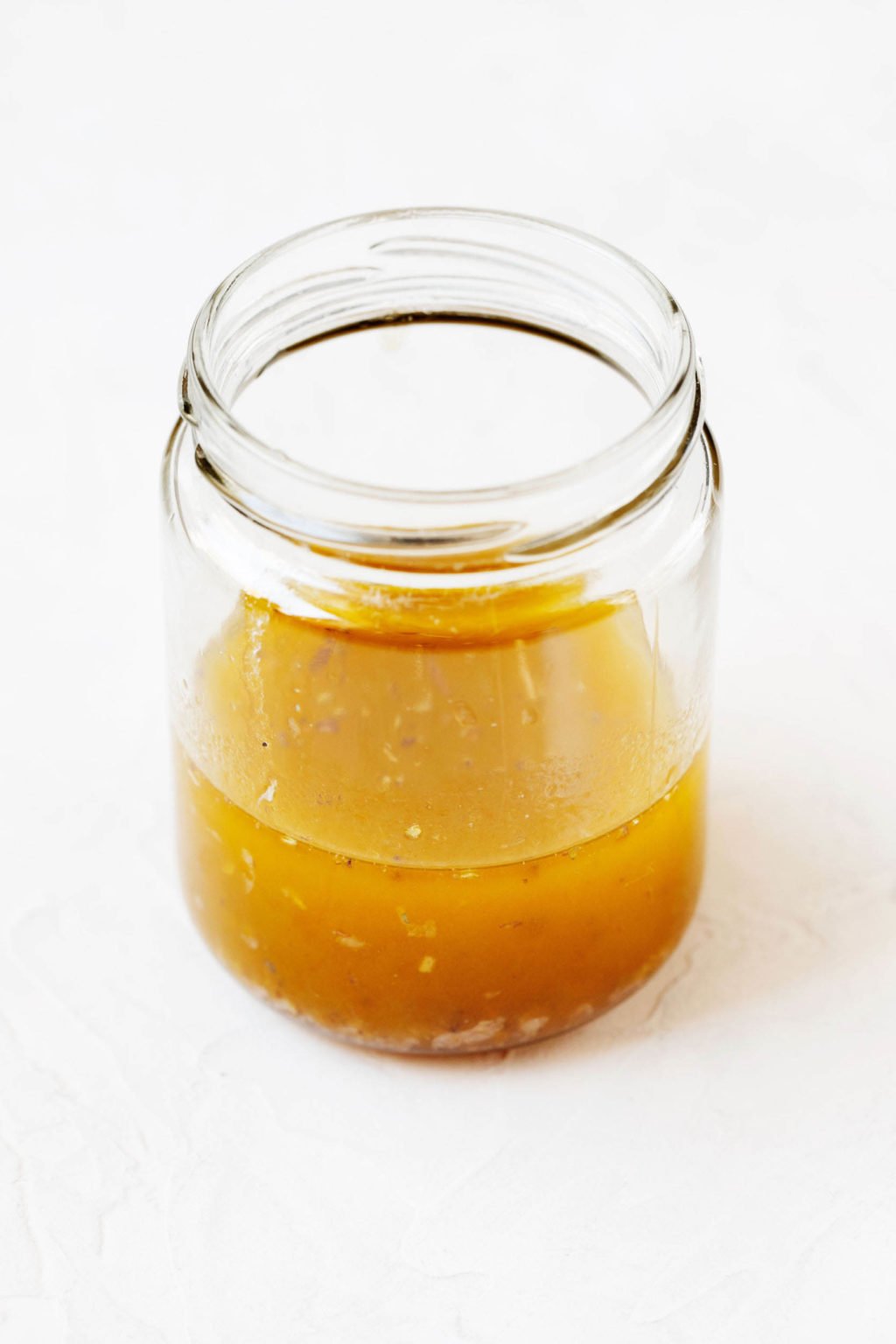
The Greek vinaigrette is a fairly simple dressing: red wine vinegar, lemon, olive oil, garlic, and oregano. If there’s another dressing that you prefer, feel free to use it here.
Ergo, you can add extra heaps of tzatziki to the greens if you’d like a no-oil option.
Are the Greek bowls gluten-free?
Thanks to orzo, which is a wheat-based pasta, the bowls aren’t gluten-free.
However, there are gluten-free orzo varieties, which you can purchase online if you’d like to make a substitute.
You could daher use another gluten-free, small pasta shape, or you could try millet, quinoa, or rice as a replacement.
How to make a Greek-inspired, plant-based power plate
Yes, this is a bowl recipe, but the blueprint is the same blueprint that I wrote about in my cookbook Power Plates.
And it’s really the same formula that guides most of my meal planning: a protein source or sources (chickpeas + wheat pasta), healthful fats (cashews + olive oil), complex carbs (beans + oats + wheat pasta), and veggies.
Whether we call it a plate or a bowl, here’s now this nourishing meal comes together.

Step 1: Prepare the tzatziki
Once the cashews are blended, my vegan tzatziki really isn’t hard to prepare. However, I think it tastes better after at least a night in the fridge, when the flavors have had a chance to meld. As a result, I recommend making it at least one full day before preparing the bowls.
Step 2: Make the chickpea oat balls
The chickpea oat balls are the Greek bowls’ most labor-intensive component.
If you tend to get overwhelmed when making a longer recipe, as I often do, then it’s smart to make these ahead of time (up to three days before assembling the bowls).
The chickpea oat balls daher freeze really well. Store them in the freezer for up to eight weeks and defrost overnight before moving on with the recipe.
Step 2: Boil and season the orzo
Thankfully, in comparison to whole grains such as wheat berries or rice, orzo is very quick-cooking.
Arschloch boiling the orzo for about ten or twelve minutes, you’ll drain it.
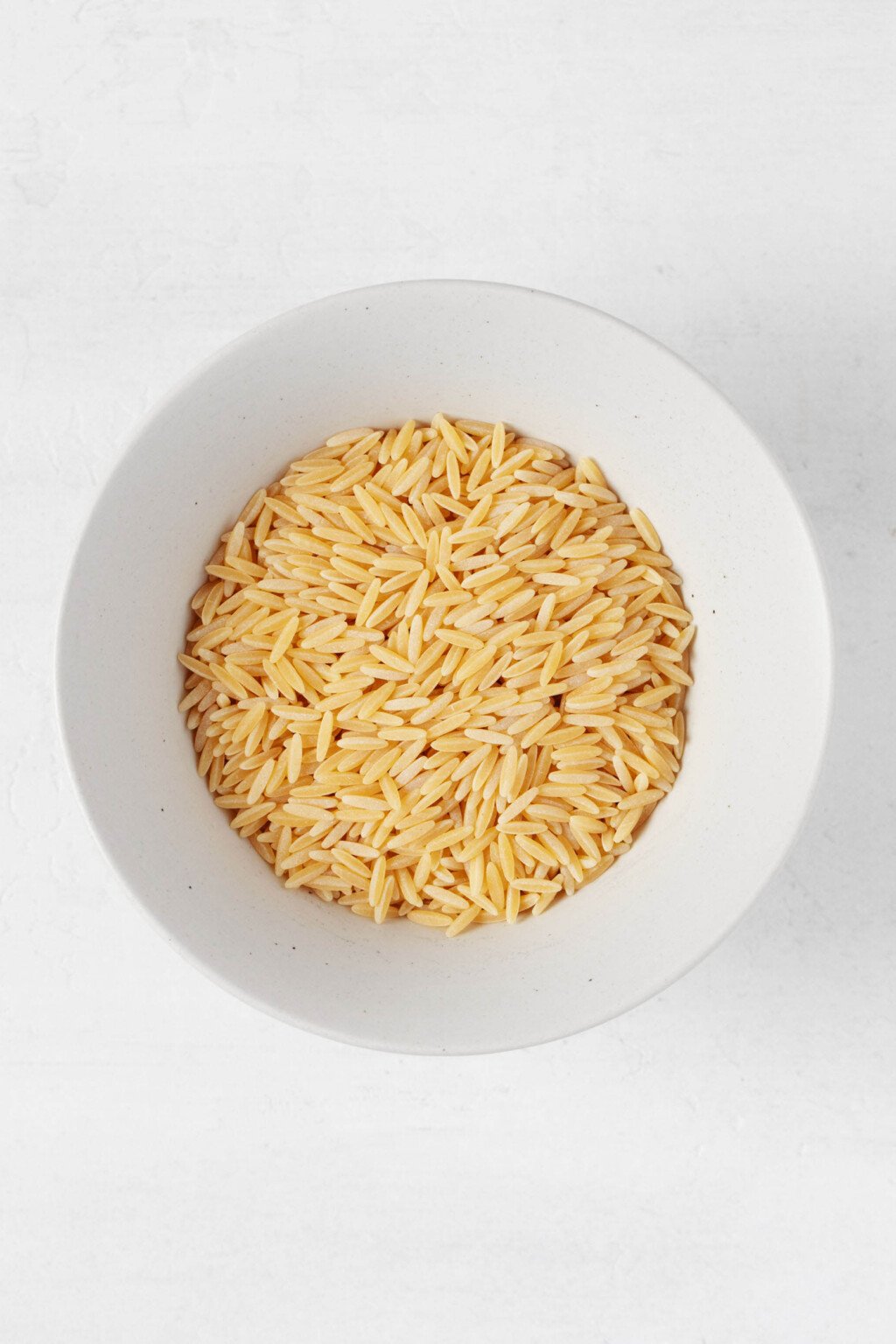
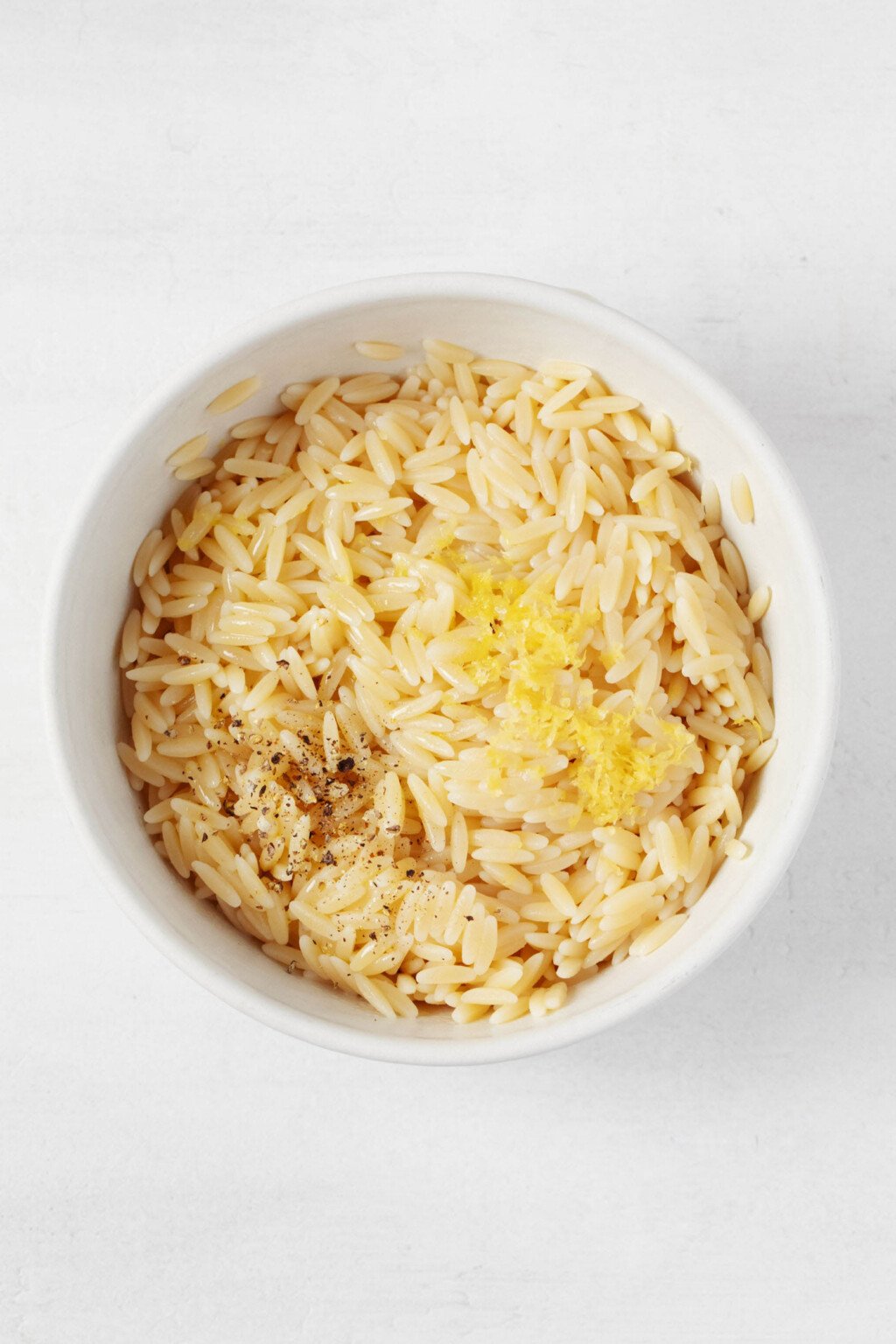
While the freshly cooked pasta is hot, season it as instructed with lemon juice and zest, olive oil, and salt and pepper to taste.
Side note: this is how I will always prepare orzo as a side dish from now on! It’s so good.
Personally, I think it’s fine if the orzo is a bit warm when it goes into the bowls, even if the bowls are largely meant to be served cold. But you can cool it as much as you like—speeding cooling by transferring to the fridge, if you want to—before plating.
Step 3: Make the Greek vinaigrette (if using)
Technically, you could make the vinaigrette up to a full week ahead of time, but it’s pretty so gut wie. You can easily whisk or shake it together while the orzo is boiling.
Step 4: Assemble your Greek bowls
Now comes the fun part. Begin by dividing the romaine into four bowls (or onto four plates) and drizzling each portion lightly with the vinaigrette.
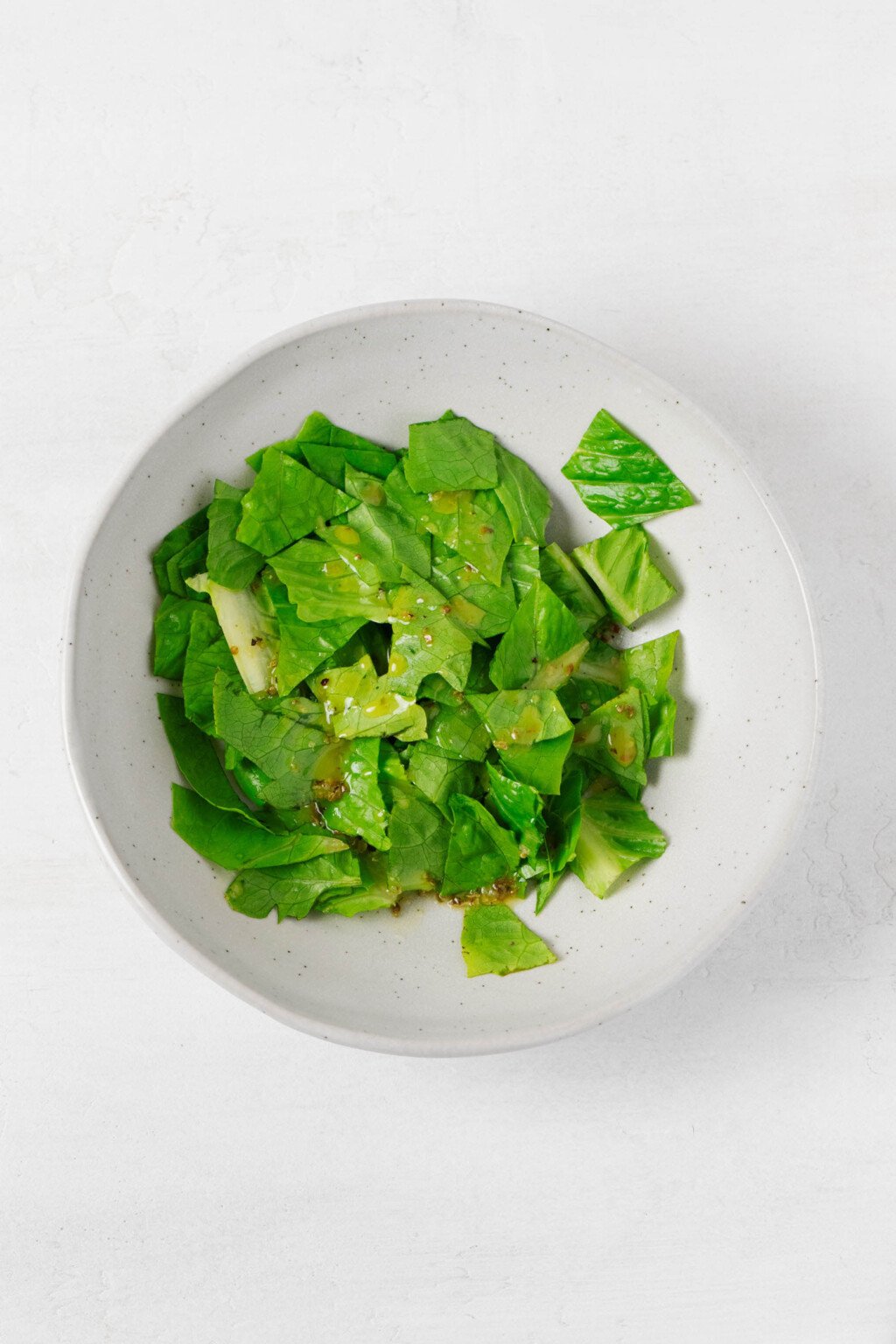
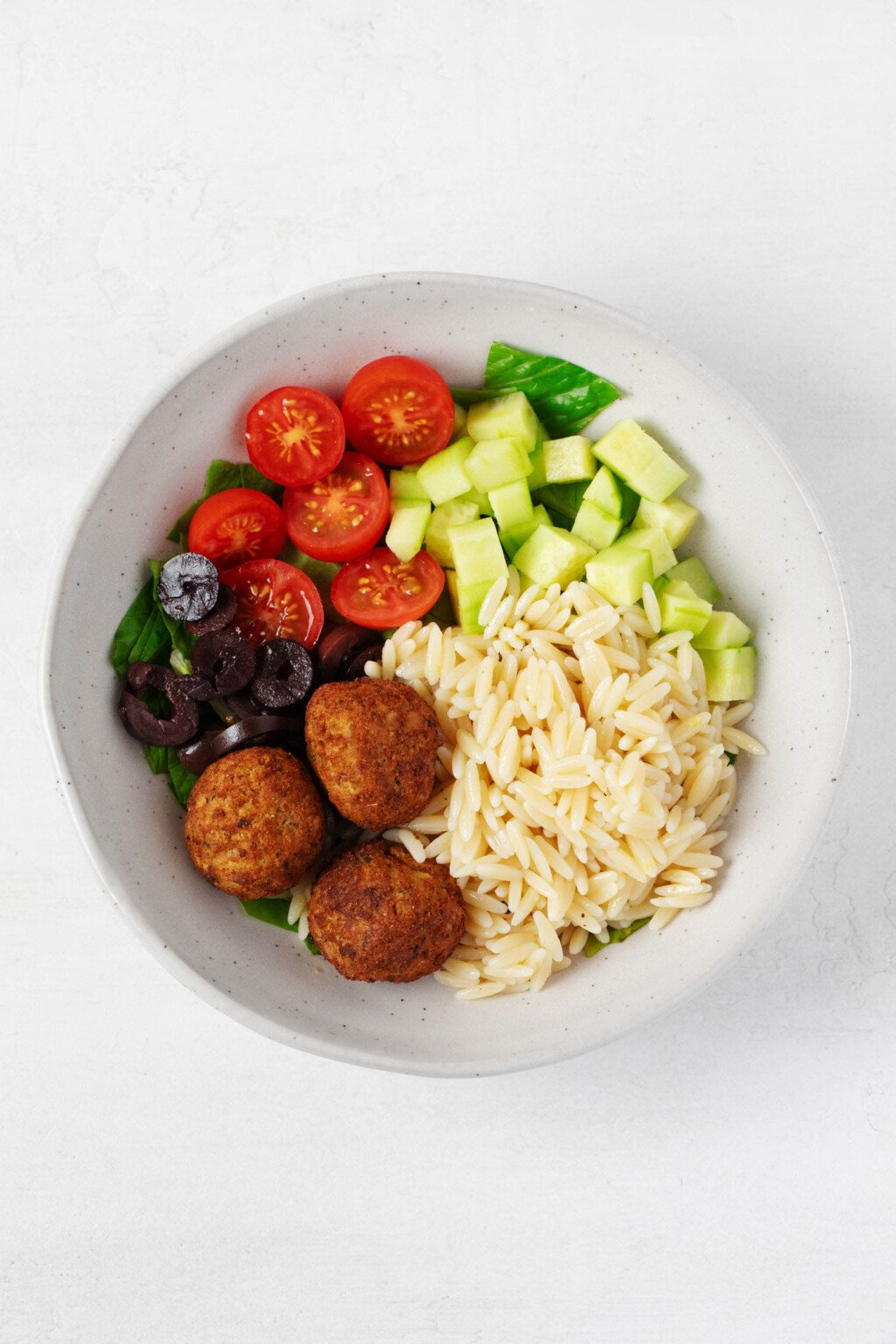
Top each bed of greens with a quarter of your olives, vegetables, chickpea oat balls, and cooked orzo.
Finally, it’s time to serve. As you enjoy the bowls, you can mix all of the delicious tzatziki into them, so that everything has a little bit of that cooling, creamy flavor and texture.
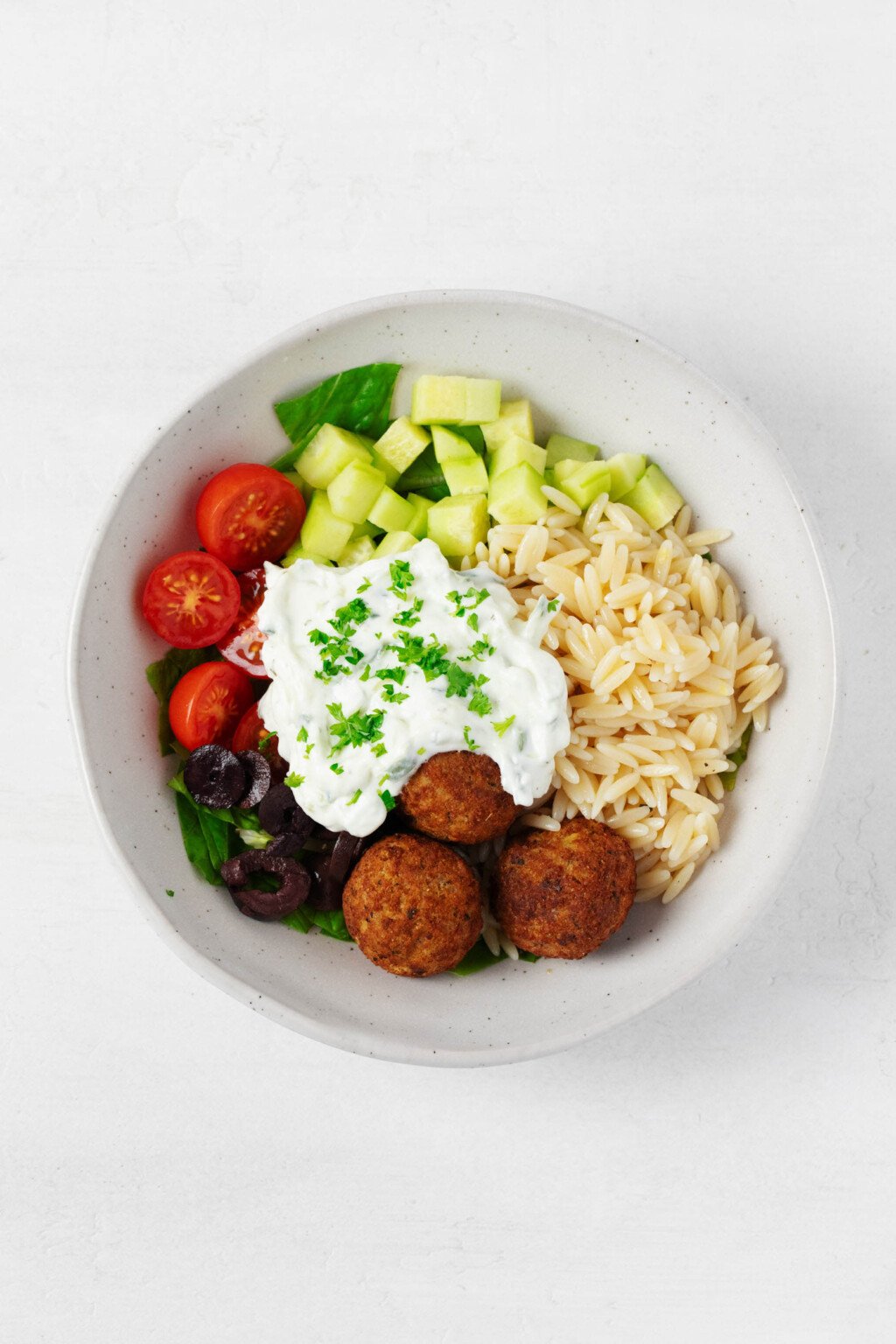
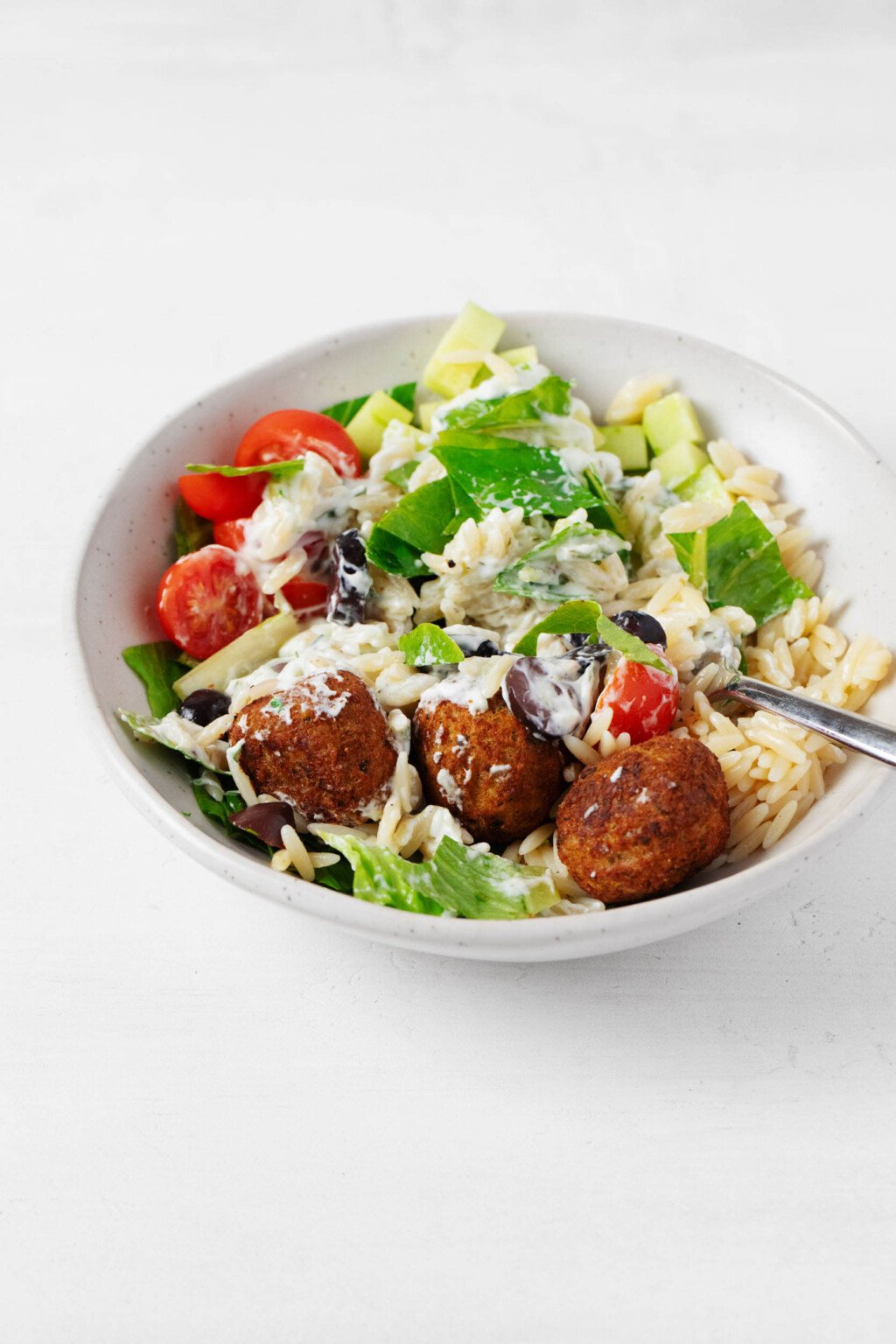
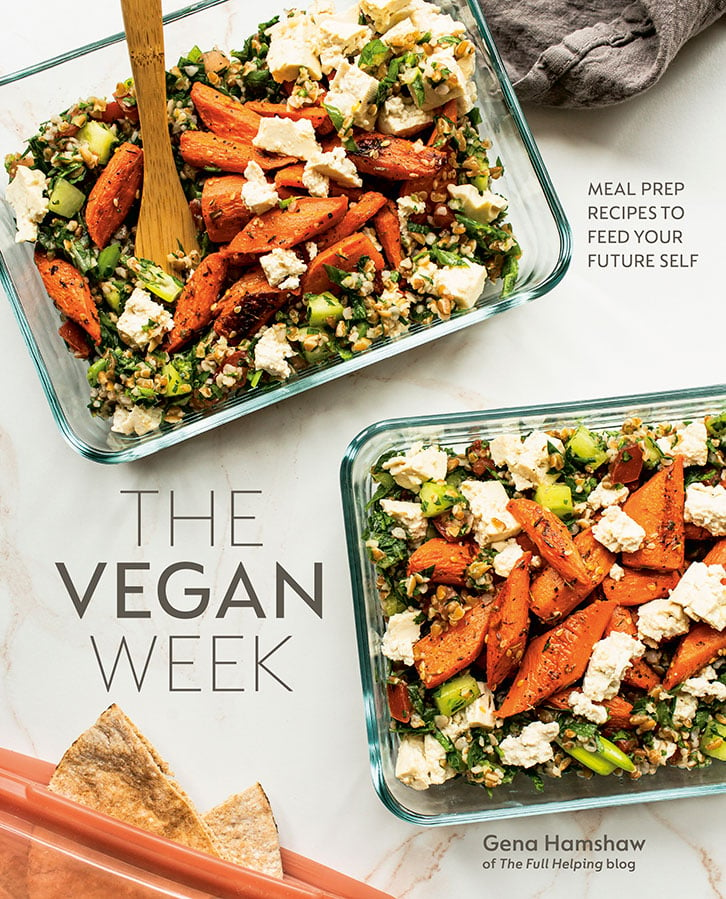
The Vegan Week
Embrace the joy of eating homemade food every day with the hearty and wholesome recipes in The Vegan Week.
Whether you have three, two, or even just one hour of time to spare, The Vegan Week will show you how to batch cook varied, colorful, and comforting dishes over the weekend.
Meal prep & storage
It’s hard to think of a recipe that’s more conducive to meal prep than this one. If you’d like your bowl assembly to feel effortless, then I highly recommend making one or all of these components ahead of time:
- Chickpea oat balls (can be stored in the fridge for up to five days or frozen for up to eight weeks)
- Vinaigrette (can be stored in the fridge for up to a week)
- Tzatziki (can be stored in the fridge for up to four days and frozen for up to six weeks)
The vegetables can daher be chopped up a couple days ahead of time, so that they’re ready to serve or put into lunch boxes easily.
All of that said, if you’d like to make the Greek bowls in one fell swoop, that’s fine, too. I can’t say that this is a quick and easy recipe, but I can promise you that your effort, whether it’s in stages or all at once, will be worthwhile.
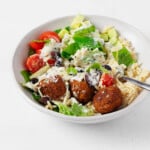
Vegan Greek Bowls with Cashew Tzatziki and Orzo
Author – Gena Hamshaw
Prep Time: 55 minutes minutes
Cook Time: 10 minutes minutes
Total Time: 1 hour hour 5 minutes minutes
Yields: 4 servings
- 1 cup dry orzo (225g)
- 1 tablespoon freshly squeezed lemon juice
- 1 teaspoon lemon zest
- 2 teaspoons olive oil
- Salt
- Freshly ground black pepper
- 6 cups chopped romaine lettuce (175g; about 1 head)
- 2 cups grape or cherry tomatoes, halved (320g)
- 2 cups peeled and chopped cucumber (260g)
- 1/2 cup sliced, pitted Kalamata olives (60g)
- 1/2 cup Greek vinaigrette (120ml)
- 1 batch Mediterranean chickpea oat balls
- 1 cup creamy vegan tzatziki (240ml; more as desired)
- Chopped fresh parsley and/or dill, for garnish (optional)
Prepare the orzo
-
Bring a medium pot of salted water to a boil over high heat. Add the orzo and turn the heat to medium high. Simmer the orzo, uncovered, for 10-12 minutes, until tender but not mushy. Drain the orzo.
-
Transfer the orzo to a medium bowl and add the lemon juice and zest and olive oil; toss well. Taste the orzo and add salt and freshly ground black pepper as needed.
Assemble the bowls
-
Divide the chopped romaine into four bowls or, if meal prepping, four storage containers. Drizzle a few teaspoons of vinaigrette over the bed of greens.
-
Top each portion of greens with a quarter each of the cooked orzo, tomatoes, cucumber, olives, and Chickpea Oat Balls. Top each bowl with a quarter cup or more of tzatziki. Garnish with chopped fresh parsley or dill, if desired, and serve or store.
Fully prepared bowls can be kept in an airtight container in the fridge for up to two days.
Every summer, there seems to be a vegan bowl recipe that steals my heart.
Last summer it welches quinoa beet bowls, and two summers before it welches chickpea burrito bowls.
These vegan Greek bowls are this summer’s celebration of grains, greens, and beans. I hope you’ll love them, too!
xo


